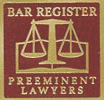Getting a driver’s license and access to the family car is a rite of passage for most teens. However, even though a teen has a driver’s license, the teen may not have the wisdom, maturity and overall experience that it takes to make safe decisions behind the wheel.
Teens, for this reason, face a high risk of getting into car accidents – and their parents face the risk of liability as well.
Many Factors Increase the Crash Risk Among Teens
The Centers for Disease Control and Prevention (CDC) reports that car accidents are a leading cause of death among U.S. teens. In fact, teens are three times more likely than older drivers to be involved in a traffic accident.
Even though drivers between the ages of 16 and 19 represent only seven percent of all drivers on the road, teen driving accidents are responsible for 11 percent of motor vehicle accident costs. This averages to roughly $10 billion each year.
According to the CDC, the factors that increase car accident risks among teen drivers include:
- Lack of experience, which leads teens to underestimate dangerous conditions or to make critical driving errors
- Reckless driving behaviors such as speeding and tailgating in order to impress friends
- Poor decisions such as driving under the influence of alcohol or drugs
- Distracted driving such as texting, talking on cell phones, taking pictures and interacting with passengers while behind the wheel.
If you or a loved one is the victim of one of these teen accidents, you may wonder whether the teen’s parents can be held liable for the damages you have suffered.
Parent Liability for Child Auto Accidents
In some states, the “family car doctrine” applies when a teen causes an auto accident. Under this doctrine, a parent’s liability is based on the premise that the parent supplied the car for the child’s use. However, Texas is among more than two dozen state that does not follow the family car doctrine.
However, under the legal theory of negligent entrustment, you could still be able to hold a parent accountable when the parent’s teen causes a car accident. Under this theory, liability is based on the fact that the owner of the vehicle allowed it to be used by an unlicensed, incompetent or reckless driver.
To establish a parent’s liability under this legal theory, you must prove four basic elements:
- The parent entrusted the car to the teen. The evidence may show that the parent customarily lent the car to the teen for the purpose of driving to work or going to social activities.
- The parent showed negligence in entrusting the vehicle to the teen. The evidence may indicate that the parent knew or should have known the teen was reckless or incompetent as a driver. For instance, the teen may have a series of traffic violations or past accidents.
- The teen driver was responsible for the accident. Eyewitness statements, accident scene evidence and input from accident reconstruction experts can help to establish the teen’s fault.
- Entrustment of the vehicle to the teen served as the proximate cause of your damages. You can meet this element by proving that the accident was a foreseeable outcome of the parent’s decision to lend the vehicle to the teen.
Protecting Yourself When You Have a Teen Driver
According to the Department of Public Safety (DPS), teens in Texas must participate in a graduated license program before they can obtain full driving privileges. In this program:
- A teen must obtain a learner’s permit at age 16. If the teen has no traffic accidents or violations, the teen can graduate to a provisional license after six months.
- The provisional license restricts the teen from traveling with more than one passenger in the vehicle who is not a family member, and it prohibits the teen from driving between midnight and 5 a.m. unless the travel is for work or school purposes.
- If the teen has no traffic incidents, the teen may graduate to a full license at the age of 18.
To keep teens safe and to avoid parent liability for teen accidents, DPS advises parents to do the following:
- Model good driving behavior for your teen.
- Limit the teen’s driving during evening hours and on weekends (when most teen accidents occur).
- Limit the number of passengers the teen can have in the vehicle.
- Educate the teen about the dangers of distracted driving, driving under the influence and other dangerous driving behaviors.
What To Do If a Teen Driver Hits You
If you suffer injuries in an accident that a teen driver causes, you may be entitled to compensation through an insurance claim. To protect your rights to compensation for the injuries you suffer, follow these steps if a teen driver hits you:
- Stop immediately at the scene and notify law enforcement.
- Get personal contact information and insurance information of all other drivers involved in the crash.
- Get contact information for any witnesses at the scene.
- Get medical attention (even if you think your injuries are minor).
- Notify your insurance company as soon as possible.
Before you make any statements to insurance company representatives or accept a settlement offer, first contact . We can provide a free consultation with an experienced Austin car accident lawyer who can help you to pursue the maximum amount you are entitled to receive for the damages you have suffered. To discuss your case, call or contact us online today.









